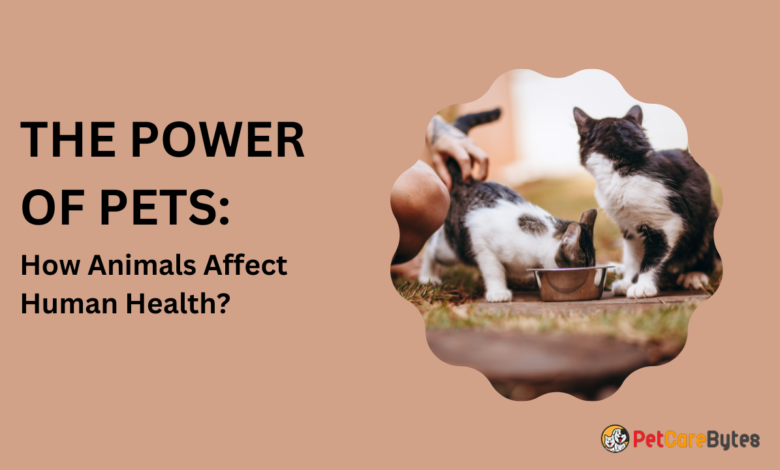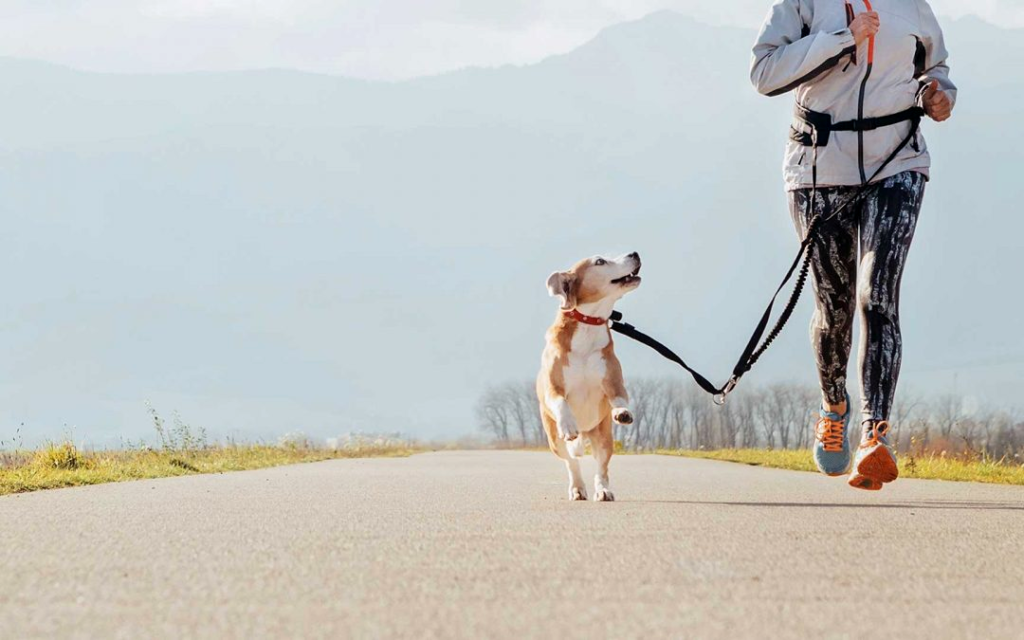
The Power of Pets: How Animals Affect Human Health
Pets have an incredible impact on human health, offering a multitude of benefits that go beyond companionship and unconditional love. This article explores the various ways in which pets positively influence our physical and psychological well-being. From reducing stress and anxiety to improving cardiovascular health, pets play a vital role in enhancing our overall quality of life.
Read More: Pet Mental Health Matters: Promoting Wellbeing in Your Pets
The Psychological Benefits of Owning Pets

Reducing Stress and Anxiety
Pets, whether furry or feathered, have a remarkable ability to reduce stress and anxiety levels in their owners. Spending time with pets has been found to lower cortisol, a hormone associated with stress, and increase the release of oxytocin, a hormone linked to feelings of happiness and relaxation. The simple act of petting a dog or cat can have an immediate calming effect, soothing frazzled nerves and providing emotional support.
Alleviating Symptoms of Depression
Pets can be a source of comfort and solace for individuals battling depression. The presence of a pet can help alleviate feelings of loneliness and sadness, providing a constant source of companionship and affection. The responsibility of caring for a pet can also give individuals a sense of purpose and routine, which can be particularly beneficial for those experiencing depressive symptoms.
Enhancing Emotional Well-being
The bond between humans and animals is a powerful one that has a profound impact on emotional well-being. Pets offer unconditional love and acceptance, creating a sense of belonging and emotional security. They can provide a listening ear without judgment, offering comfort during difficult times. Having a pet can boost self-esteem and confidence, as well as provide a source of joy and happiness in one’s life.
Physical Health Benefits of Having Pets
Lowering Blood Pressure and Heart Rate
Studies have shown that interacting with pets can have a positive impact on blood pressure and heart rate. The act of petting a dog or cat can lead to a decrease in both systolic and diastolic blood pressure, as well as a reduction in heart rate. These physiological changes contribute to a healthier cardiovascular system and can potentially lower the risk of heart disease.
Improving Cardiovascular Health
Owning a pet, particularly a dog, has been associated with improved cardiovascular health. Regular walks with dogs can help increase physical activity levels, leading to weight management and improved heart health. Additionally, dog owners tend to have lower cholesterol and triglyceride levels, further reducing the risk of cardiovascular problems.
Boosting Immune System
Growing up with pets has been shown to strengthen the immune system, especially in children. Exposure to pet dander and outdoor allergens early in life can help build immunity and reduce the likelihood of developing allergies and asthma. Pets also introduce a diverse range of bacteria into the household, which can contribute to a stronger immune system and decreased risk of allergies.
Social Benefits and Improved Relationships
Facilitating Social Interactions
Pets act as social facilitators, helping to break the ice and initiate conversations. Taking a dog for a walk or visiting a dog park opens up opportunities for social interactions with other pet owners and animal lovers. Pets provide a common ground for people to connect and share experiences, fostering a sense of community and belonging.
Strengthening Bonds and Connections
Pets have a unique ability to strengthen relationships and forge deeper bonds between individuals. Whether it’s a couple sharing the responsibility of caring for a pet or a child growing up with a furry friend, the shared experience of pet ownership fosters a sense of teamwork and unity. Pets teach us about loyalty, compassion, and unconditional love, enriching our relationships with both humans and animals.
Providing Support and Companionship
For individuals facing challenging life circumstances or dealing with health issues, pets offer unwavering support and companionship. They provide a source of comfort and emotional stability during times of crisis or loneliness. The presence of a pet can help alleviate feelings of isolation and offer a sense of purpose and responsibility.
Pets as Motivators for Physical Activity

Encouraging Exercise and Outdoor Activities
Pets, particularly dogs, serve as excellent motivators for physical activity. Daily walks, playtime, and outdoor adventures with pets encourage regular exercise and help individuals maintain an active lifestyle. The need to care for pets’ exercise requirements ensures that pet owners engage in physical activities regularly, benefiting their own health in the process.
Increasing Fitness Levels
Engaging in physical activities with pets can lead to increased fitness levels. Whether it’s playing fetch, going for a run, or participating in agility training, these activities not only provide exercise for the pet but also improve the owner’s endurance, strength, and overall fitness. Regular exercise has numerous health benefits, including weight management, improved cardiovascular health, and increased energy levels.
Combating Sedentary Lifestyles
In today’s sedentary lifestyle, owning a pet can help combat the negative effects of prolonged sitting and inactivity. Pets require daily exercise, which encourages pet owners to get up and move, reducing the risk of obesity and associated health conditions. Taking breaks to play or walk with pets throughout the day can improve focus, productivity, and overall well-being.
Pets and Children’s Development
Enhancing Emotional Intelligence
Growing up with pets can have a profound impact on children’s emotional intelligence. Interacting with animals teaches children empathy, compassion, and non-verbal communication skills. The bond formed with a pet provides a safe space for children to express their emotions and develop a deeper understanding of others’ feelings.
Teaching Responsibility and Empathy
Caring for a pet instills a sense of responsibility in children. Feeding, grooming, and exercising pets require consistent effort and commitment. Through these tasks, children learn the importance of taking care of others’ needs and develop empathy for animals. Pets teach children valuable life lessons about nurturing, compassion, and the consequences of their actions.
Boosting Self-Esteem and Confidence
The companionship and unwavering love of a pet can significantly boost a child’s self-esteem and confidence. Pets provide non-judgmental support, serving as a constant source of encouragement and validation. The sense of accomplishment that comes from taking care of a pet can improve a child’s self-worth and belief in their abilities.
Pets in Therapy and Healing

Animal-Assisted Therapy
Pets play a crucial role in animal-assisted therapy, a therapeutic approach that utilizes the presence of animals to promote healing and well-being. Interacting with animals in a structured environment can help individuals with physical, mental, or emotional challenges. Animal-assisted therapy has been shown to reduce anxiety, improve mood, and enhance social interactions.
Support Animals for Individuals with Disabilities
Service animals, such as guide dogs for the visually impaired or therapy dogs for individuals with autism, provide invaluable support to people with disabilities. These highly trained animals assist individuals in performing daily tasks, enhance independence, and improve the overall quality of life. The presence of a support animal can also provide emotional comfort and stability.
Pet Visitation Programs in Healthcare Settings
Pet visitation programs have gained popularity in healthcare settings, such as hospitals and nursing homes. The presence of therapy animals in these environments can provide a sense of joy, comfort, and distraction from illness or pain. Interacting with animals has been shown to reduce stress, lower blood pressure, and improve overall well-being among patients.
Read More: 5 Ways to Help Your Dog Overcome Separation Anxiety
FAQs (Frequently Asked Questions)
Are there any pets that are more beneficial to human health than others?
While different pets offer varying benefits, research suggests that dogs and cats are among the most beneficial in terms of improving human health. However, the specific benefits can vary depending on individual preferences, lifestyle, and needs.
Can owning a pet help with managing stress?
Yes, owning a pet has been shown to help manage stress. Spending time with pets, such as petting them or playing with them, can release feel-good hormones and provide a sense of relaxation and comfort.
Can pets help with loneliness?
Yes, pets can help combat loneliness. Their presence provides companionship and a sense of connection, particularly for individuals living alone or experiencing social isolation.
Do pets have an impact on children’s development?
Yes, growing up with pets can positively impact children’s development. Pets teach children important values such as responsibility, empathy, and compassion. They also contribute to children’s emotional intelligence and self-esteem.
Can pets be used in therapy?
Yes, pets are often used in therapy settings. Animal-assisted therapy and support animals have been shown to provide therapeutic benefits, reducing anxiety, improving mood, and facilitating healing in various populations.
Conclusion
The power of pets in positively impacting human health is undeniable. From reducing stress and anxiety to improving cardiovascular health, pets offer a multitude of physical and psychological benefits. They provide companionship, support, and unconditional love, enhancing our overall well-being. Whether it’s through their calming presence, motivating us to be more active, or fostering social connections, pets play a significant role in promoting a healthier and happier life.







